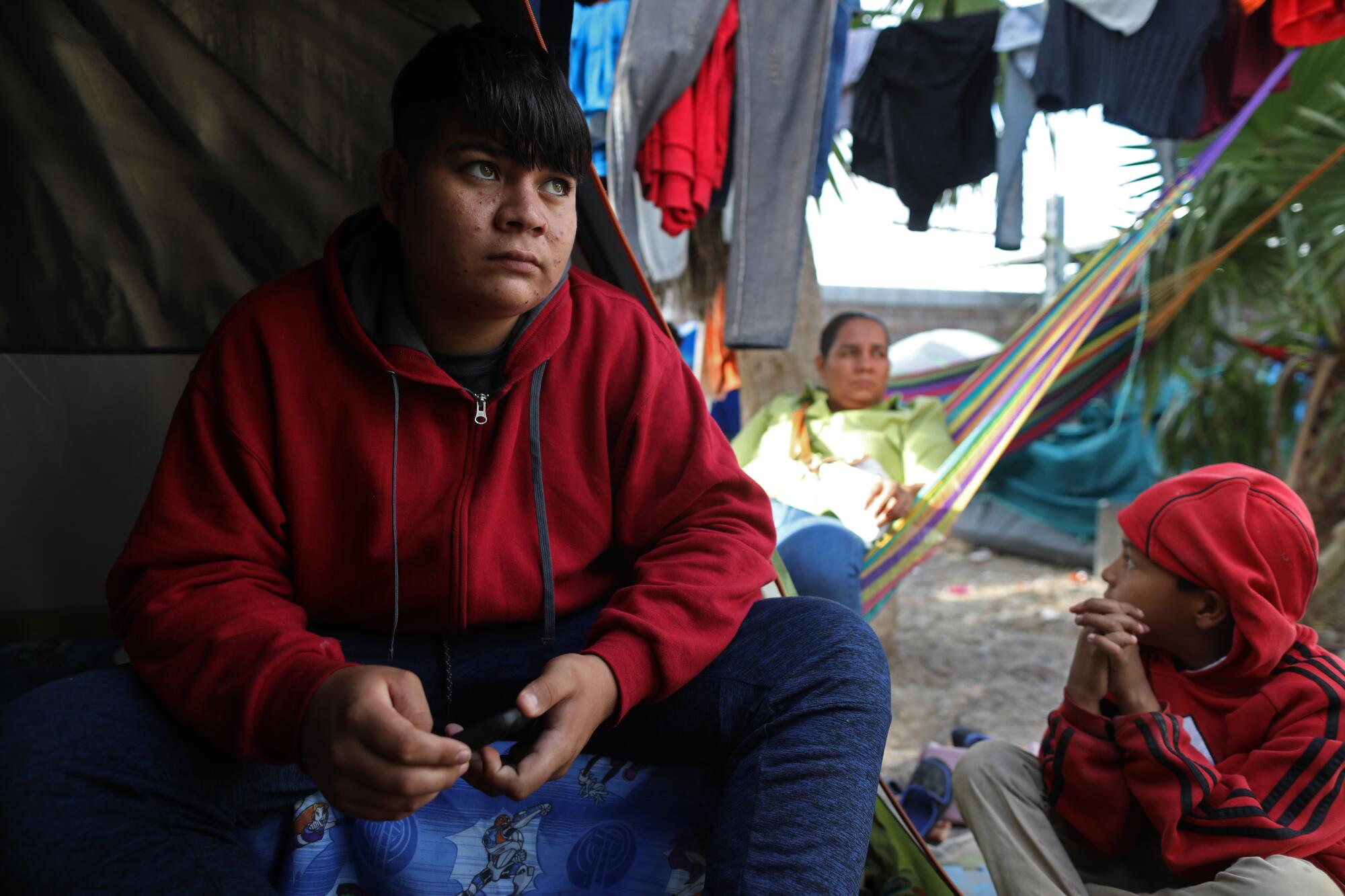
MATAMOROS, Mexico — For three months, Claudia Quesada Rodriguez and her 12-year-old daughter Maria Jose lived in a migrant camp in this Mexican border city waiting for their day in U.S. immigration court.
Now it had finally arrived.
Mother and daughter woke early Wednesday and made their way to the border bridge, where they waited with dozens of other asylum seekers who also had hearings scheduled at a tent court on the other side.
But soon after the two entered the country, U.S. Customs and Border Protection staff noticed the girl looked ill and took her temperature and a nose swab.
Then they sent the pair back to Mexico and the judge postponed their hearing to March 12 — another three months of waiting after Quesada said she fled gang threats in El Salvador.
“It’s an injustice,” Quesada, 36, told her daughter after they walked back. “There are a lot of sick people here and when you’re living in a tent, what can you do?”
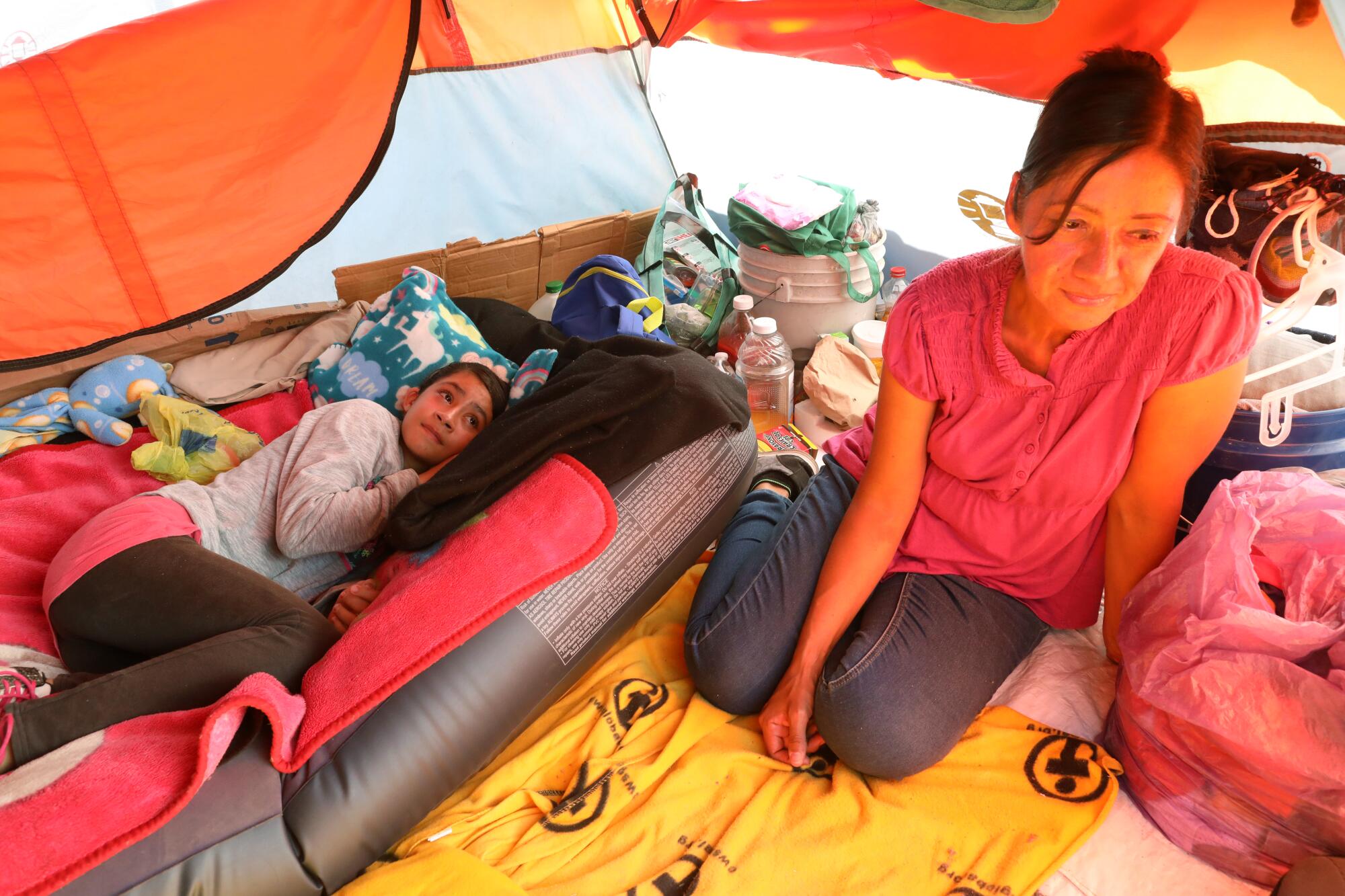
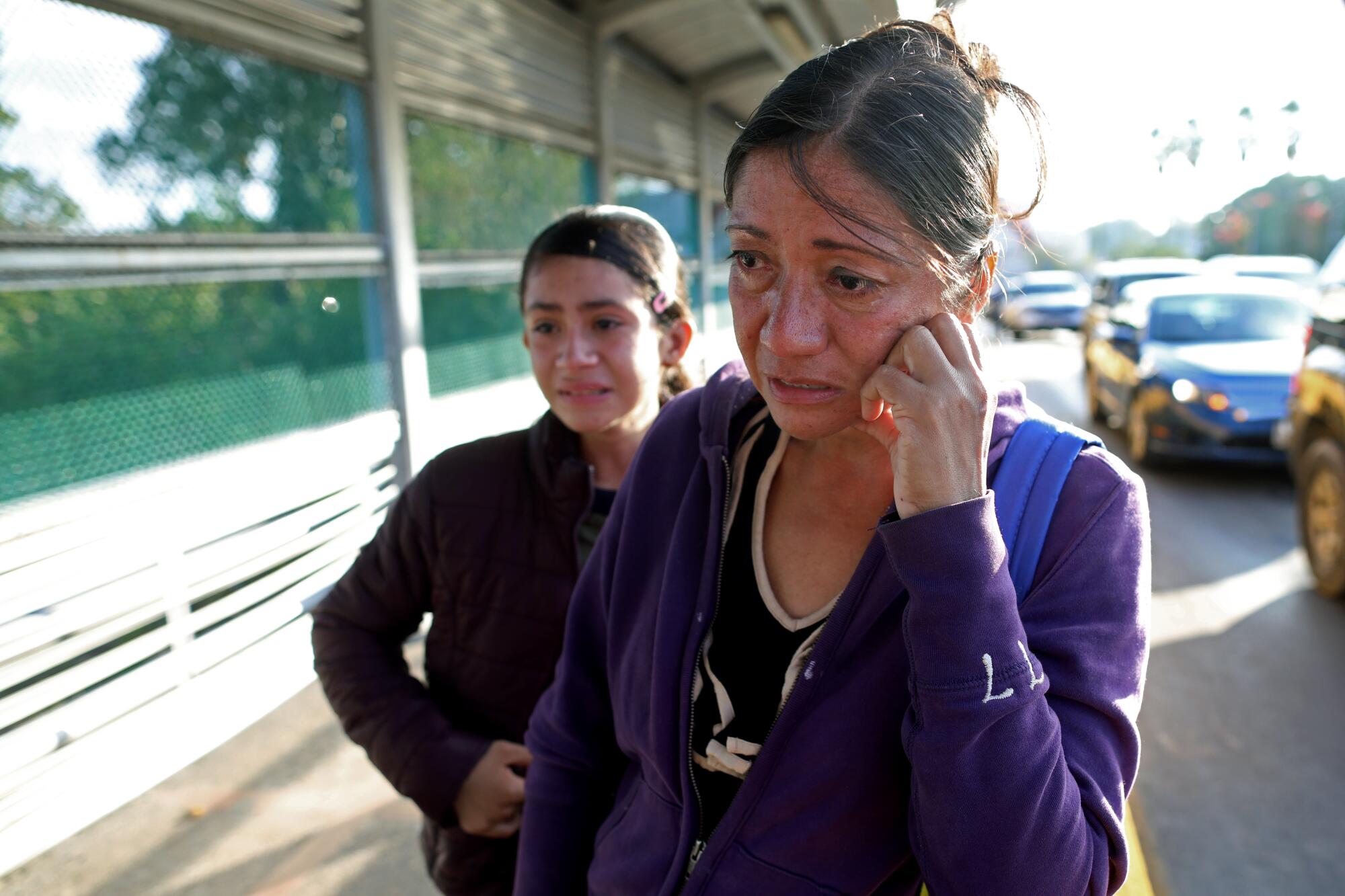
Migrant rights advocates say that medical screenings have become the latest tactic used by the U.S. government to discourage asylum seekers from pursuing their claims.
“It’s just one more example of the arbitrariness of the process,” said Denise Gilman, who directs the University of Texas Law School Immigration Clinic in Austin. “It’s not really an adjudicatory process — it’s more of an obstacle course.”
Indeed, at the Matamoros camp where Quesada and her daughter have been living, migrants said it’s common for those who fail medical screenings to return home.
U.S. border officials say the screenings are necessary to detect diseases and protect migrants and those they encounter in U.S. courts.
“A lot of times these persons are brought in groups and transported in groups and they wait on buses,” said an official for Customs and Border Protection, or CBP, who was not authorized to be quoted by name. “You don’t want someone who potentially has a communicable disease transmitting that to people throughout the day.”
The official said it was rare for screenings to delay court hearings, but neither he nor court officials were able to provide statistics.
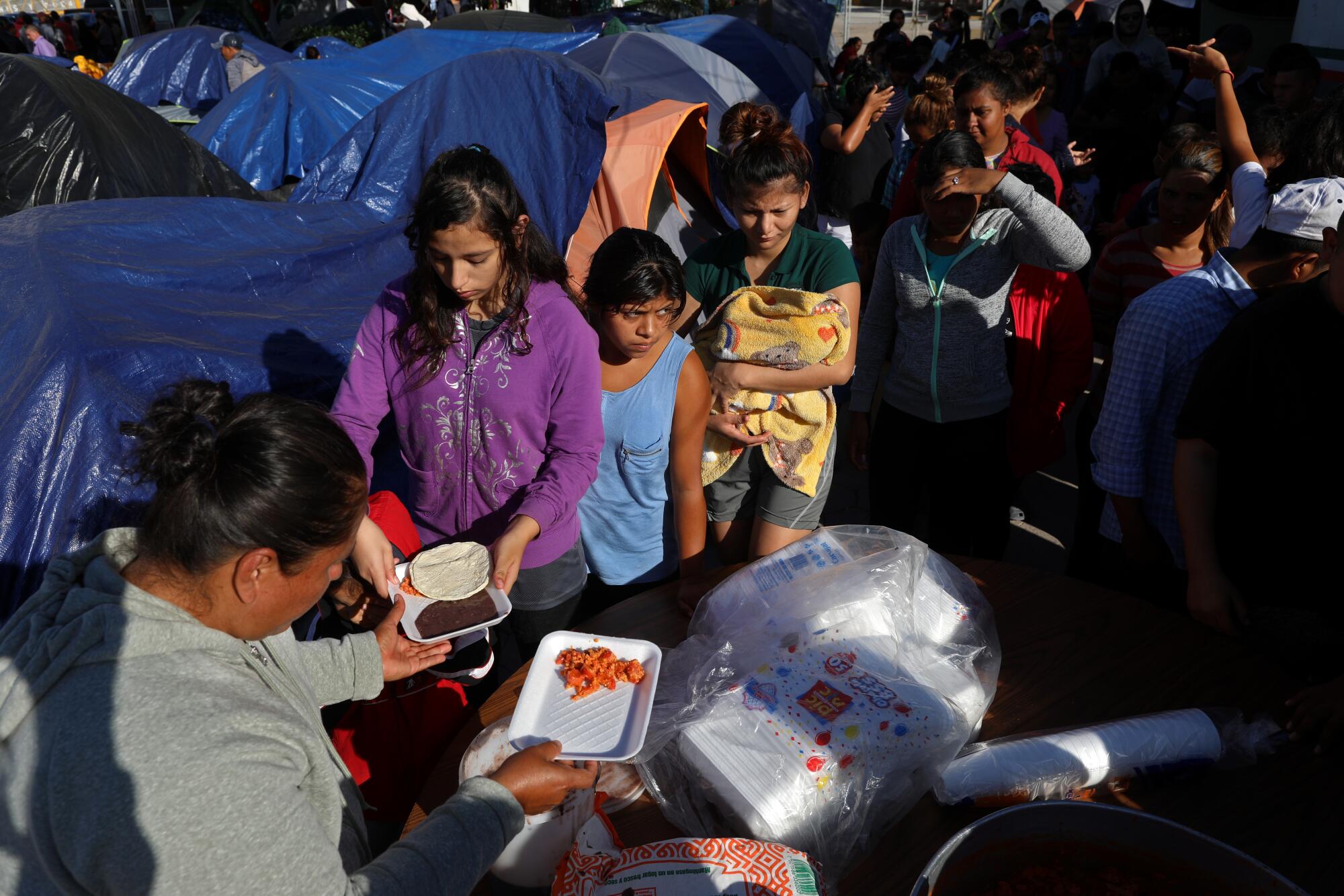
Roughly 54,000 migrants were returned to Mexico this year under the federal Migrant Protection Protocols program better known as Remain in Mexico. They typically wait months for the first of several court dates before judges rule on their asylum claims.
The screenings are conducted by medical contractors, including nurse assistants, nurse practitioners, paramedics and medical technicians, the official said.
Migrants are instructed to raise their sleeves and shirts so their skin can be examined. Those who appear ill are subjected to more medical testing and, depending on the results, are either returned to Mexico or sent to a hospital.
Immigration and Customs Enforcement notifies the courts that migrants were barred from attending hearings and ensures they’re rescheduled, the official said.
Migrant advocates, however, said the screening process gives too much power to U.S. border officials and can amount to a rights violation.
“The problem is it’s all at CBP discretion,” said Leidy Perez-Davis, policy counsel for the American Immigration Lawyers Assn. “If they’re misdiagnosed, if they don’t have the disease that CBP says they have, there’s no recourse.”
“If one member of the family is sick and the whole family gets turned back, then that’s a due process violation for everyone else,” she said.
Some asylum seekers suggested the screenings have been carried out arbitrarily and enforced inconsistently.
Patricia Campos Pineda said she and her 15-year-old son, who had the chicken pox, were turned away from court after a medical screening last week and told to return Feb. 20.
But Campos’ sister and her son, who shared a tent with them, were allowed to attend court.
“After waiting so many months, now they don’t give me any explanation,” said Campos,
The federal immigration official said he couldn’t comment on specific cases, but that, “You can’t always be sure if someone says they’ve been vaccinated or had chicken pox before.”
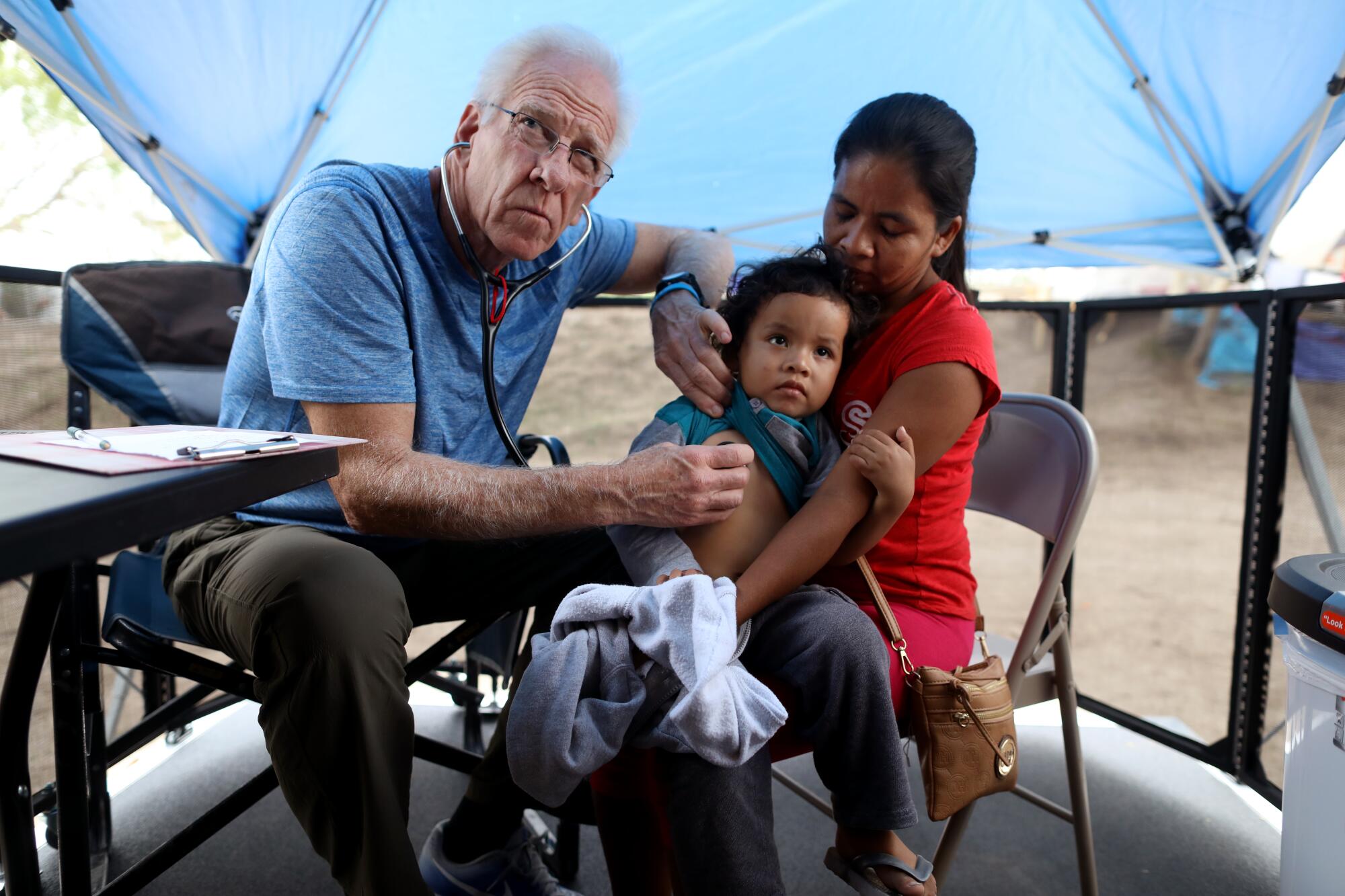
Other migrants pointed to what they said were screening errors.
When Lorna Molina and her two children — ages 4 and 7 — arrived for court in Laredo, Texas, last month, a paramedic stopped them at the entrance, inspected their heads and said they had lice.
Molina, who is from Guatemala, said it was dandruff and appealed to a supervisor, who found she did not have lice. But that was two hours after her scheduled court hearing.
“It was an injustice,” said Molina, whose family has been staying with friends across the border in Nuevo Laredo, where they have already been kidnapped once. Their next court date is Feb. 4.
In El Paso, according to Perez-Davis, several asylum-seeking Cuban doctors who had been returned to Mexico said they were also mistakenly diagnosed with lice and barred from attending immigration court this month.
In Matamoros, at least one father and daughter were mistakenly barred from court for having lice, said nurse practitioner Helen Perry, whose nonprofit Global Response Management has run a clinic at the camp for the last two months.
“She didn’t have lice — she had dandruff,” Perry said.
The federal immigration official defended those conducting medical screenings. “Our teams on the border are very experienced at identifying lice,” he said.
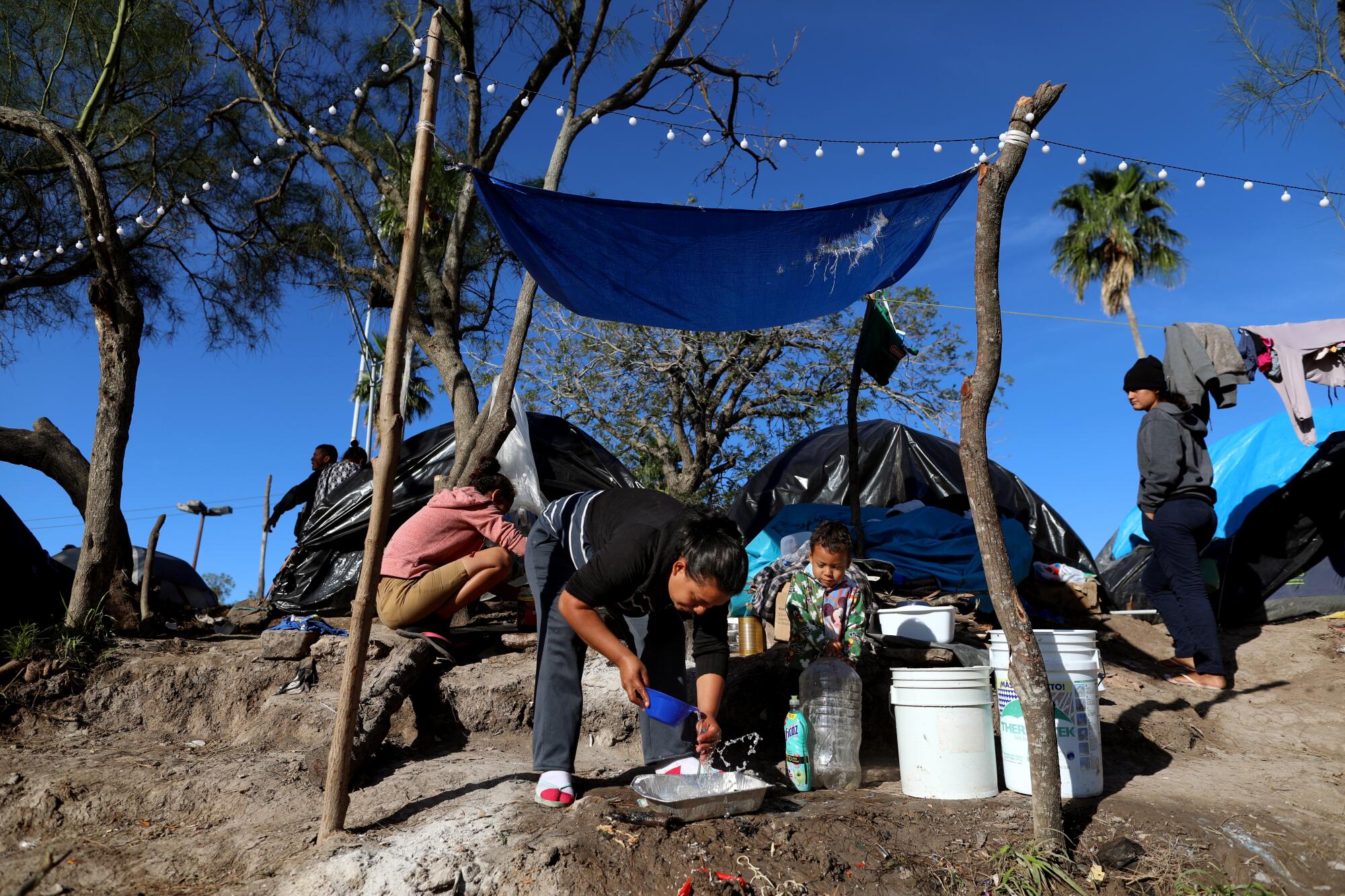
At the migrant camp in Matamoros, which has swelled to more than 2,500 people in recent weeks, it is easy to understand why U.S. officials have concerns about disease.
The dozen portable latrines are overwhelmed. Migrants must pay to use private bathrooms or else bathe in the polluted Rio Grande.
U.S. doctors have encouraged the U.S. government to vaccinate migrants against influenza and other diseases before sending them back to Mexico to await their court dates. The flu virus contributed to the deaths of three migrant youths in U.S. custody last year.
But Border Patrol officials have refused, saying the migrants are in U.S. custody for too short a time.
Perry’s group began vaccinating babies in the camp against the flu last week, but donors were only able to buy 20 doses.
Honduran Nahun Ortiz, 37, brought his 8-year-old son Axel to the clinic last week after he started coughing. Their U.S. court hearing is scheduled for Monday — but first his son has to pass a screening.
“They could change the date,” he said. “We don’t know if we’re going to enter or not.”
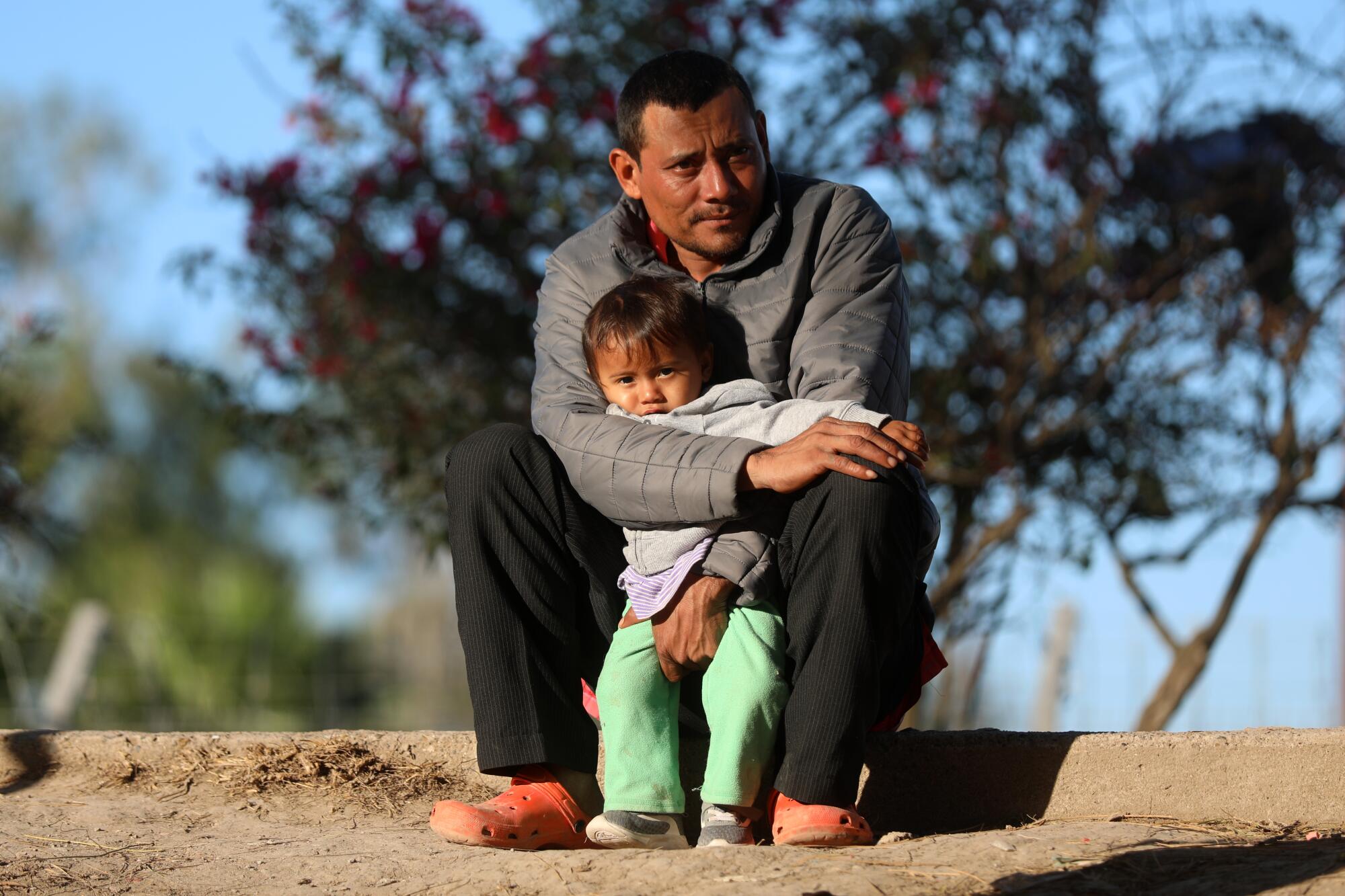
More to Read
Sign up for Essential California
The most important California stories and recommendations in your inbox every morning.
You may occasionally receive promotional content from the Los Angeles Times.











